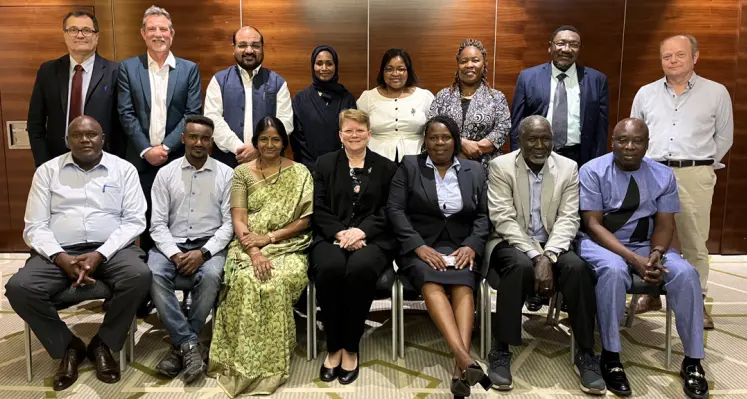Representatives from the global south gathered in Dubai from 25-26 March, to convene a collective action plan to secure the future of millets
High-level representatives from leading millet-producing countries in the global south including India, Mali, Nigeria, Niger, Kenya, Zimbabwe, Ethiopia, and Malawi, alongside prominent organisations such as the International Crops Research Institute for the Semi-Arid Tropics (ICRISAT), the Food and Agriculture Organisation (FAO), the International Centre for Agricultural Research in the Dry Areas (ICARDA), the International Centre for Biosaline Agriculture (ICBA), and the Indian Institute of Millets Research (IIMR), came together to devise strategies for strengthened collaboration under a shared vision of resilience for the drylands.
Key outcomes of the meeting included the development of plans for establishing Centers of Excellence on Millets in major millet-producing countries, that envision to serve as hubs for innovation, research, and knowledge exchange, driving sustainable crop production, resilient value chains, and broader consumer access to affordable and nutritious millet-based diets. The convening also served as a platform to reaffirm a shared commitment to achieving the sustainable development goals (SDGs) in the global south, particularly by supporting food security, poverty eradication, and environmental sustainability.
“It is important that we build on the momentum and legacy of the International Year of Millets 2023 (IYM2023) to ensure the world has access to millets, which are Smart Food with the ability to feed and nourish the planet amid growing global populations, increasing temperatures and climatic events,” remarked director general of ICRISAT, Dr Jacqueline d’Arros Hughes.
For more information, visit: https://www.icrisat.org/





